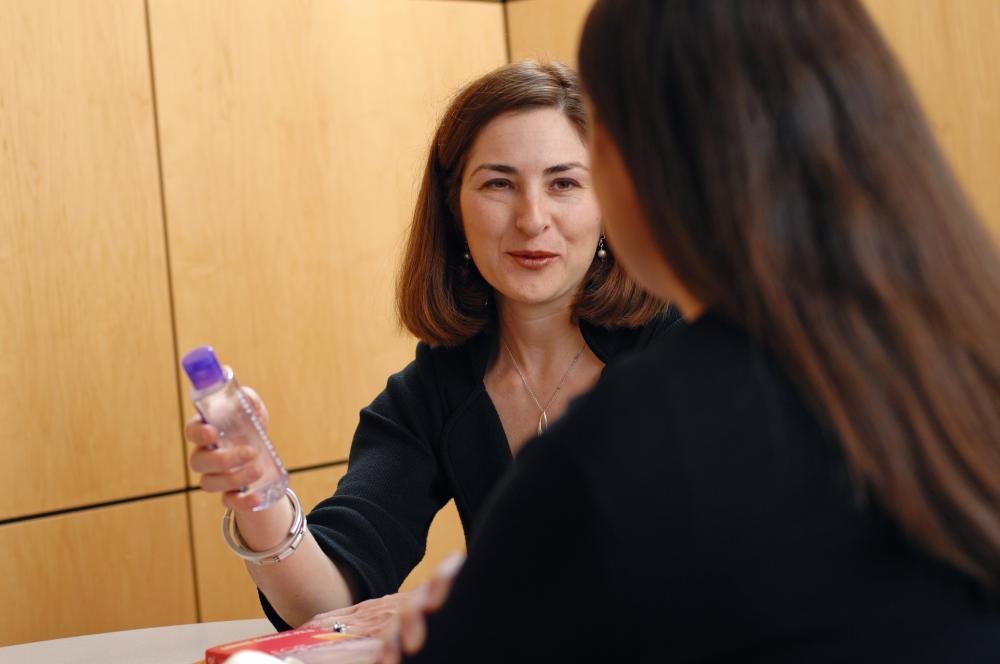Treatment for cancer may cause changes in the way patients feel about their bodies and about sex. Some may feel disconnected from their bodies after chemotherapy, hormone therapy, and surgery, while others undergo major physical changes such as early menopause or erectile disfunction.
“If sex is different than it used to be and it causes distress, then it deserves care,” says Sharon Bober, PhD, director of Dana-Farber’s Sexual Health Program. “Sex is about quality of life.”
Bober recently joined Dana-Farber’s Young Adult Program for a Twitter chat to discuss sexual health for young adults with cancer. While an important topic for patients of all ages, sexual health is often more sensitive for young adults, who may find it difficult to talk about sex with their partners. Young adults are also more likely to experience body image issues, and may be more interested in dating casually than settling down with one partner.
Here, Bober shares advice for young adults facing sexual health concerns during or after treatment.

Know that help is available
Talking about sexual health issues with your doctor can seem awkward, but your quality of life is as important to your care team as curing your disease. Find someone on your team – your oncologist, nurse, social worker, or a therapist – you trust, and share your concerns with them.![]() If your partner or parents usually accompany you on appointments, don’t be afraid to ask for some privacy while speaking with your care team.
If your partner or parents usually accompany you on appointments, don’t be afraid to ask for some privacy while speaking with your care team.
Learn more:
It’s important to communicate any physical symptoms that may affect sex. “Any woman who has treatment-induced menopausal symptoms, at any age, needs to learn about vaginal health,” Bober stresses. This includes using vaginal moisturizers as part of regular self-care – regardless of sexual activity – and learning about the pelvic floor. “Painful sex is a quick way to lower desire,” she adds. For men who have trouble with erectile function, urologists can help them explore options if medications aren’t working.
“Both men and women may find that desire isn’t spontaneous after treatment,” says Bober, which can be attributed to a combination of physical and hormonal changes, as well as body image concerns. Speaking with a therapist or a sexual health expert, like Bober, can help patients facilitate desire by addressing the mind-body components of intimacy.
Make sure you have a partner you trust
Patients in serious relationships may have an easier time discussing their sexual health with partners, but it can still be uncomfortable. Bober recommends having these conversations away from the bedroom and using “I” language, for example, “I feel self-conscious after my mastectomy and worry what you might think of my scars.” It’s also important to plan a time to talk, rather than surprising your partner.![]()
For young adults in particular, there is a shift toward casual “hook-up culture.” This can make disclosing your cancer history – regardless of sexual health concerns – even trickier. “It’s important to take your time and take the pressure off doing everything sexually with a new partner all at once,” says Bober. “Hook-up culture is not that sexy when you don’t feel comfortable.”
Bober recommends sharing a little of your cancer experience with a new partner and seeing how they respond. If they seem scared or put off, “you probably wouldn’t want to be with them anyway,” she says.
Take it slow
“The best sex happens when partners can communicate about their needs,” says Bober. Take your time, make sure you are comfortable with your body, and share your needs and worries with your partner.![]() Young adults may feel left behind by their peers who are casually dating, but it’s important not to rush anything you aren’t comfortable with. Shifting the focus from sex to pleasure, which can take pressure off of both parties, can also help, Bober says.
Young adults may feel left behind by their peers who are casually dating, but it’s important not to rush anything you aren’t comfortable with. Shifting the focus from sex to pleasure, which can take pressure off of both parties, can also help, Bober says.
“Just because sex is different than it was before, doesn’t mean it can’t be satisfying,” she says. “If it’s not ideal today, remember to keep an open mind; how it is today doesn’t mean that’s how it will always be.”
